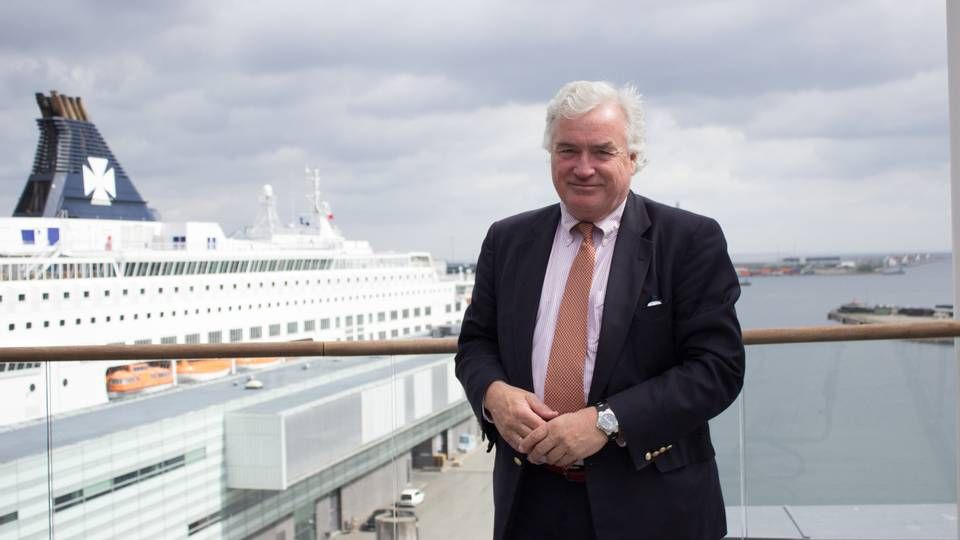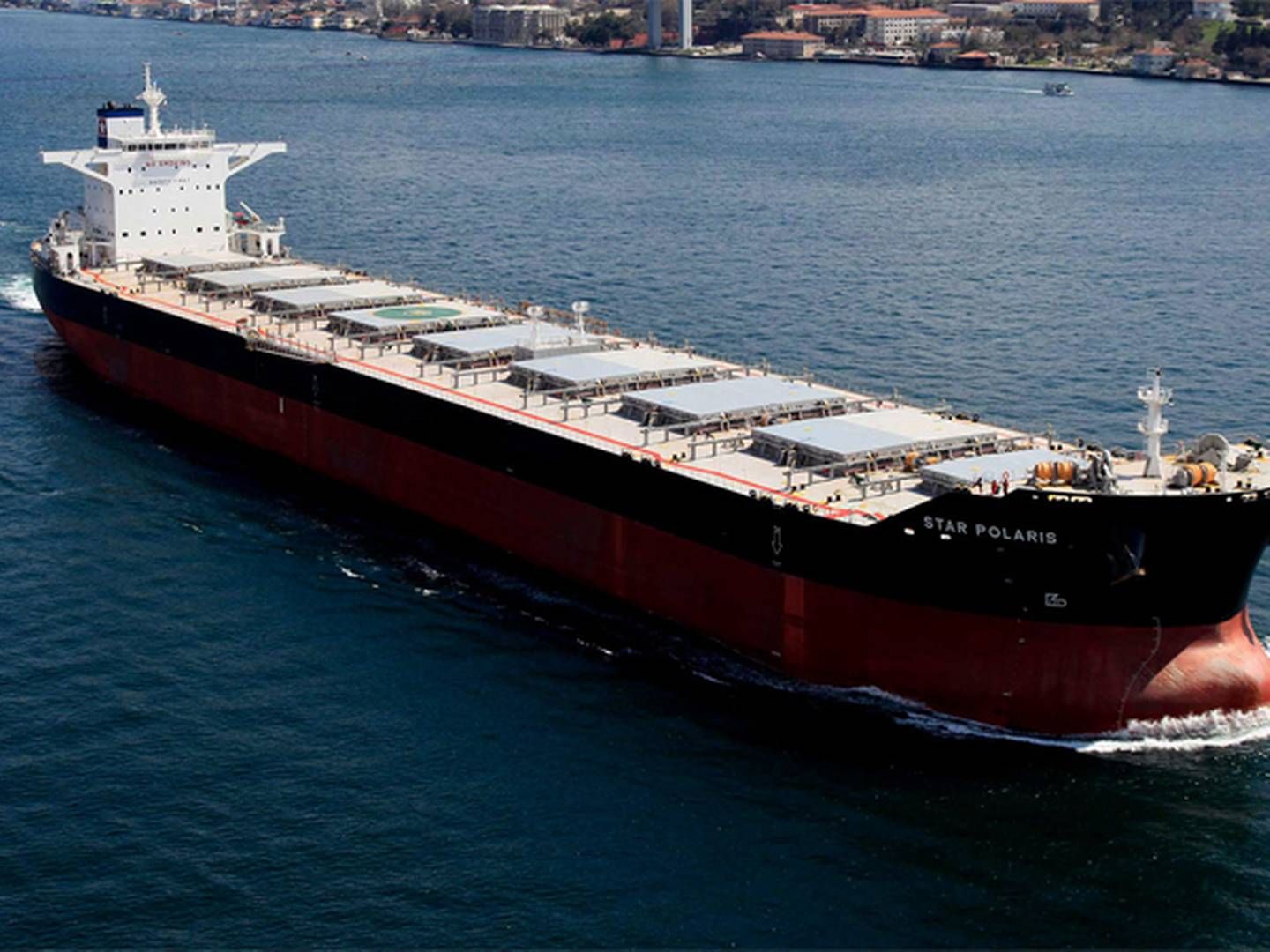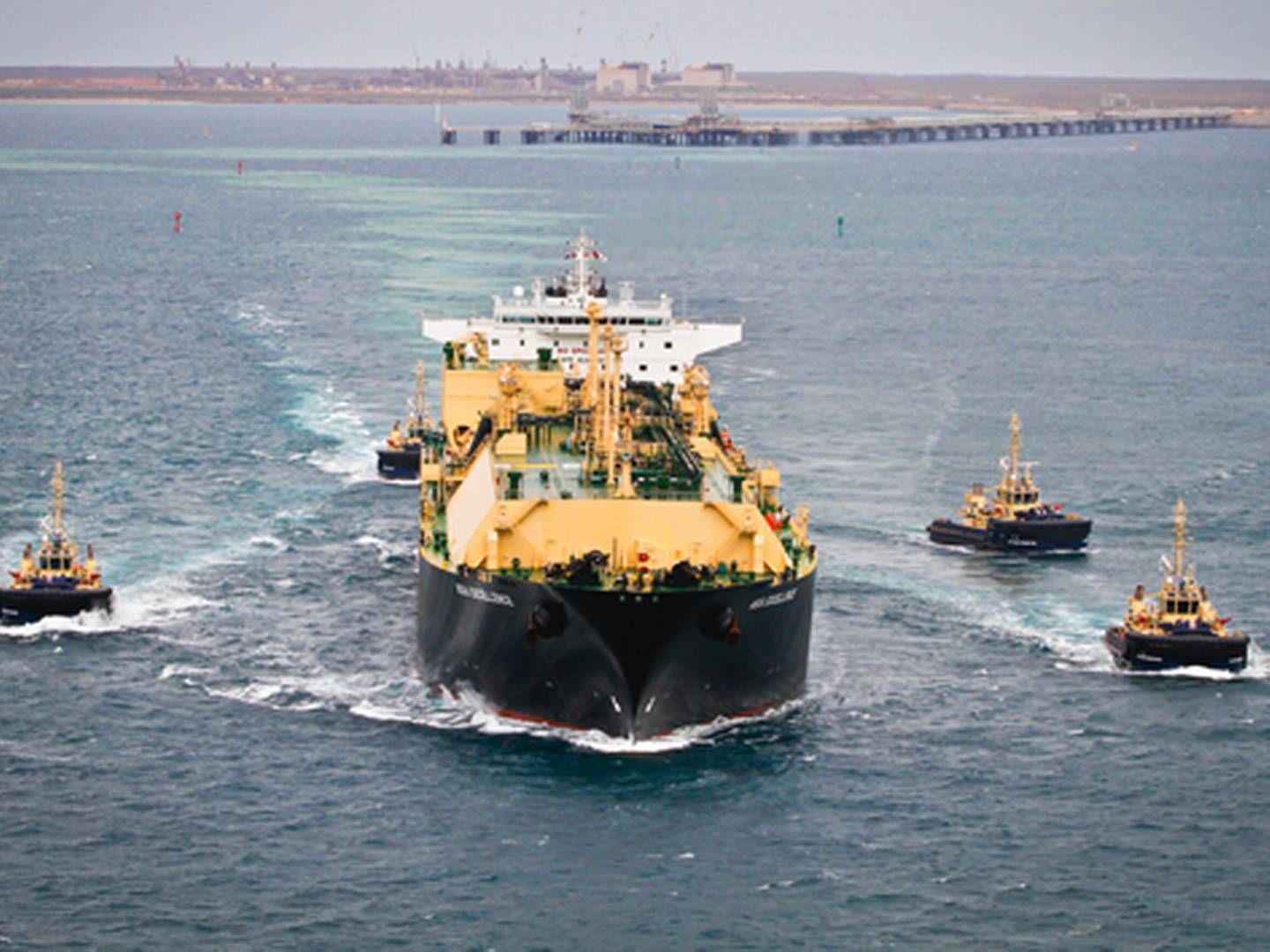"I had no vessels, no activity and no money. I went from 7,400 employees to one"

In the days leading up to Christmas last year, Axcel C. Eitzen visited to two of Europe's large ports. First Hamburg, then Antwerp. In the cold December weather, two chemical tankers from Herning Shipping were docked at the quay, and Eitzen was to inspect them in order to make a crucial decision. For the first time in three years, he set foot on a chemical tanker vessel, where he was met by Danish top officers and sub officers from the Phillipines. It was a good feeling and he was finally convinced while on board the vessels.
One month prior, Axel C. Eitzen had received a phone call from a business associate of many years, Erik Bartnes. He suggested the two sit side by side and look more closely at the prospects for Herning Shipping, the chemical tanker carrier which had long been up for sale. The next day, they met at Bartnes' office, and things quickly developed from there.
Eitzen, who is Norwegian and one of the Nordics' most famous shipping personalities, surprised many with news of his comeback. Joining forces with two other prominent shipping players from Norway, Bartnes and Nicolai Heidenreich, Eitzen took over Herning Shipping from capital fund Triton. He is currently CEO of the carrier which has been renamed Christiania, the former name for the city of Oslo where Eitzen's family lives.
"I have waited for an opportunity such as this one. It was a quick decision when you look at how much time has been spent on it, and that I have moved overseas," says Eitzen about the events the previous winter.
On the top floor of a building in Amerika Plads, 38 in Copenhagen, Eitzen has just held a meeting with a colleague with the windows facing DFDS' ferry terminal and the Danish shipping cluster down the road. Eitzen is back where he begun.
The building is owned by the 63-year-old shipping magnate and also housed Eitzen companies Eitzen Chemical, Eitzen Gas and several other companies across six floors one year ago, before the downturn in 2011 which sent Eitzen and his family dynasty plummeting.
A shipowner returns
In May, Axel C. Eitzen returned with Christiania Shipping, which has moved in on the sixth floor, which previously served as his office and meeting room for the shipping group. This is not the first time Eitzen has had his eye on the Danish chemical carrier, he says in an interview with ShippingWatch.
"I have been in extensive contact with Herning during my time at Eitzen Chemical, and I wanted to do something with them," said Eitzen, who after visiting the vessels in December held more meetings with Triton's Terje Askvig and Per Sylvester Jensen, the CEO of Nordic Tankers, which has operated the vessels, to reach an agreement.
Both familiar to each other, perhaps friends, of Eitzen. Like many other shipping figures they have crossed paths with the Eitzen family's carriers, and according to Eitzen it was Askvig, who in his time refused to do anything with Herning Shipping when acting as CEO for Eitzen Chemical. Herning's vessels were too small, said Askvig.
"So it was funny to come back and look at it," says Eitzen in a warm tone, a cautious smile spreading across his face.
He is wearing ash coloured suit and silver hair curls around his ears. He sets the pace when he discusses those periods in his carrier which may have helped to whiten his hair faster than others.
The ups-and-downs of the Eitzen family are an indication of how risky it can be to invest in shipping. An industry, which for several years has proved unfriendly to companies across virtually all segments, and where there is a continuous battle to come out the other side of one of the worst crises in the industry. Not everyone has emerged unscathed, and returning is definitely not without its risks, says Eitzen.
"Shipping is a risky industry. You have to be willing to lose money. But it has been my entire life. It is what I want to work with," he says, adding:
"I lost almost everything during the financial crisis, so it has been a long way back."
A dangerous cocktail
There are more battles in the history of the Norwegian shipping magnate. However, 2011 was particularly notable. After several years of intense battle, Eitzen had to give up the efforts to rescue his family's shipping companies and stepped down from the board of the 130-year-old holding company Camillo Eitzen & Co as well as the top job of Eitzen Maritime Services after demands from Nordea bank.
For some, it may have come as a relief to let go, but not for Eitzen. He had already once experienced bankruptcy and starting again on equity of USD 10,000, back in 1986. Now he was about to start again.
"I had built everything up again, so no, I didn't think it was a relief to put it down again. I was keen to continue shipping and not stop it," he says.
Before the 2008 financial crisis, Eitzen had values of over NOK 2 billion in his private holding company, Eitzen Holding. Within six months, in the spring of 2011, the fortune had disappeared. While Eitzen says that various shipping companies in the group were performing okay, it was the poisonous cocktail of two much debt in the holding company and the global economic downturn which prompted the empire to crash. Without, however, taking Eitzen himself down with it.
While he was left with huge financial problems, he was not crushed. The family was behind him, and he was still able to be proud of what had been built up over the years, he says.
"Nothing had been badly handled in Camillo Eitzen in terms of violating rules or dispositions that can be questioned. The markets became bad, and we had too much debt. However, without losing confidence in the shipping world, it is possible to come back," he says today about his climb back to shipping.
"I had no vessels, no activity and no money. I went from 7,400 employees to one, and that was my wife. It has been just us for ten years."
Legacy
From Oslo, the couple have been working to come out on top again. They sold some art pieces to raise capital and buy small shares in vessels. First, 10 percent of a gas vessel, which has since become four gas vessels and a bulk vessel, which are all operated by the family from the Norwegian capital.
Camillo Eitzen was founded by Eitzen's grandfather back in 1883. As a fourth generation member of the company, Eitzen did not at all consider it a possibility that this would be the end.
"A period without vessels is ok, but I did not want the carrier to be shut down on my watch. I have no expectation that some of my children will take over, but that won't stop me," he said.
With the acquisition of Herning Shipping together with the two Norwegian partners, today Eitzen is back with 12 chemical tankers, 12 employees at Amerika Plads and a subsidiary in France with six employees. The carrier has been a thorn in the side of the previous owner with one deficit after another. Most recently in 2017, where the deficit landed at USD 74 million.
Sources in the market have pointed out that the sale price must have been good. Although Eitzen will not disclose the acquisition price, it was a "willing seller" as he says.
"So you, naturally, try to secure a better cost price than if it was a willing buyer."
Eitzen and partners, among other things, sought to get the chartering division on board and succeeded. Today, former Herning employers sit at the office of Christiania Shipping. A second critical factor was that Swedish bank SEB impaired the loan to the carrier by USD 144.9 million, so the debt ratio in the carrier is at a good level today, according to Eitzen, when measuring ship values in the market.
Is there anything you would have done differently today?
"There is often something. However, I believe I would have done most things the same way. To build up these organizations across different markets. However, in retrospect, I would have had lower debts in both the companies and privately. That was what made us go down, and that was certainly an experience that will be important to take on board as we move on as Christiania."
English Edit: Lena Rutkowski
Related articles
Here are the carriers that have chosen scrubbers
For subscribers
Noble Group receives commitment on trade finance facility
For subscribers



















